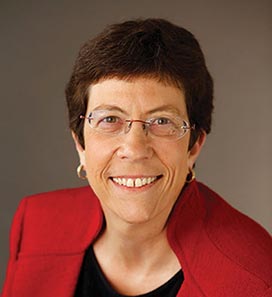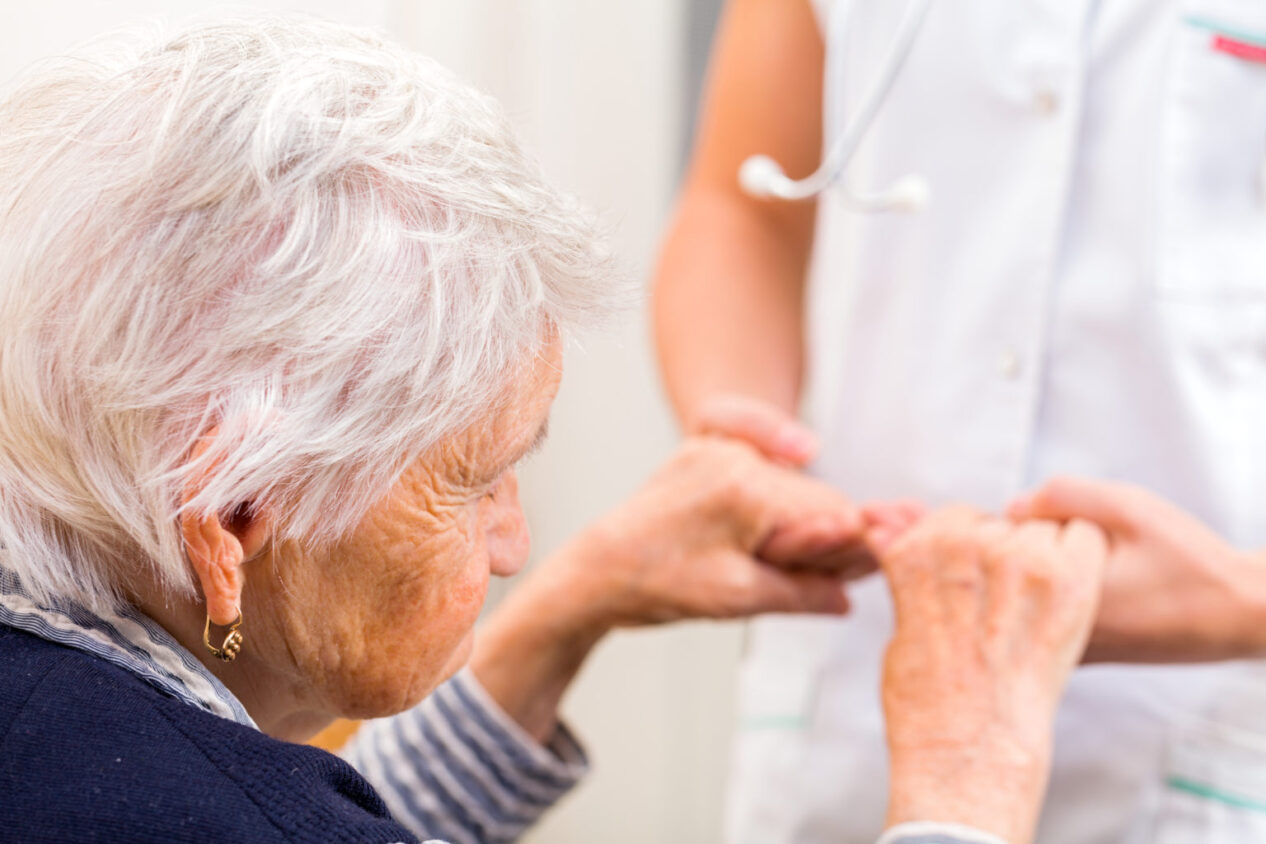
Dean Laura Mosqueda
Dr. Laura Mosqueda, Dean and Professor at the Keck School of Medicine of USC, is raising awareness about the issue of elder abuse and shaping how it is addressed in medical schools, clinics and the national conversation.
In a recent episode of the Lessons in Lifespan Health podcast, Mosqueda emphasized the need for physicians and other healthcare professionals to be aware of the signs of elder abuse. Mosqueda, who has a joint appointment with the USC Leonard Davis School of Gerontology, is an expert on elder abuse, which is believed to impact one in six older adults worldwide. She is bringing the conversation about elder abuse to medical students, leading lectures about elder abuse as part of the curriculum addressing family violence.
“Whenever an older adult comes into an emergency room or a primary care office with some sort of injury or wound, we almost always can find a reason other than abuse or neglect that it happens,” Mosqueda says. “So, we don’t want to overcall it and over-accuse people, but we need to be aware that it’s a possibility.”
As a geriatrician and primary care physician, Mosqueda stresses that a holistic view of the patient extends beyond a single health issue to the person’s entire body and beyond. Understanding the issues an older adult is facing in their family and wider social life can help doctors identify people at risk for abuse, neglect, or other issues, she says.
“Sometimes I joke around with my patients and I say, well, your cardiologist’s job is to pay attention to your heart, and my job is to make sure that we remember the heart is attached to the rest of you, and how are we going to take care of your heart in the context of you,” she says. “And then, even as importantly, in the context of your family and your social situation.”
One social factor with a major impact on older adults? Caregiving and the stress that caregivers often face. Elder abuse can often be an inadvertent consequence of unhealthy levels of stress rather than purposeful malice, Mosqueda says, so mitigating that stress and providing caregivers with avenues for support is critical for helping older adults stay healthy and safe.
“There’s remarkable work being done to help caregivers and this idea of caregiver stress, it’s so important for caregivers who are under stress to recognize that within themselves, to not feel embarrassed or ashamed, and to reach out and accept help, which is very hard for a lot of us to do,” she says.
Elder abuse is just one of the complex issues that physicians must learn about to best serve older patients, and Mosqueda acknowledges that getting new physicians and other health care professionals interested in studying geriatrics is often a challenge, especially since it means that professionals must confront their own feelings on aging. However, she adds that her experiences as a geriatrician have been richly rewarding.
“One of my big jokes is nobody has ever thanked me for preventing their fall,” Mosqueda says. “If you go into oncology, it’s a very heroic sort of specialty, and cardiothoracic surgery is very heroic. Geriatrics is not what you think of when you think of a heroic specialty. So it just doesn’t have the same kind of oomph and excitement that other specialties do. But once you get in there, and you do some house calls, and you meet people who are 90 or 100 years old and hear their stories. For me, that’s very inspiring.”
Learn more about Dean Mosqueda and her work at keck.usc.edu/faculty-search/laura-mosqueda/.





